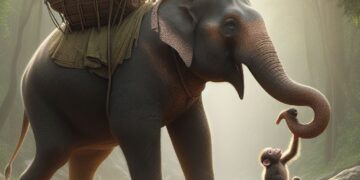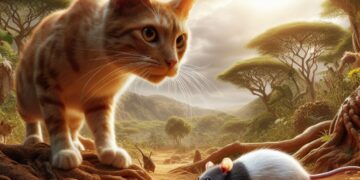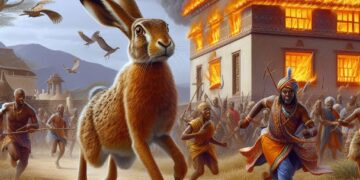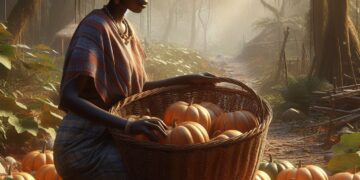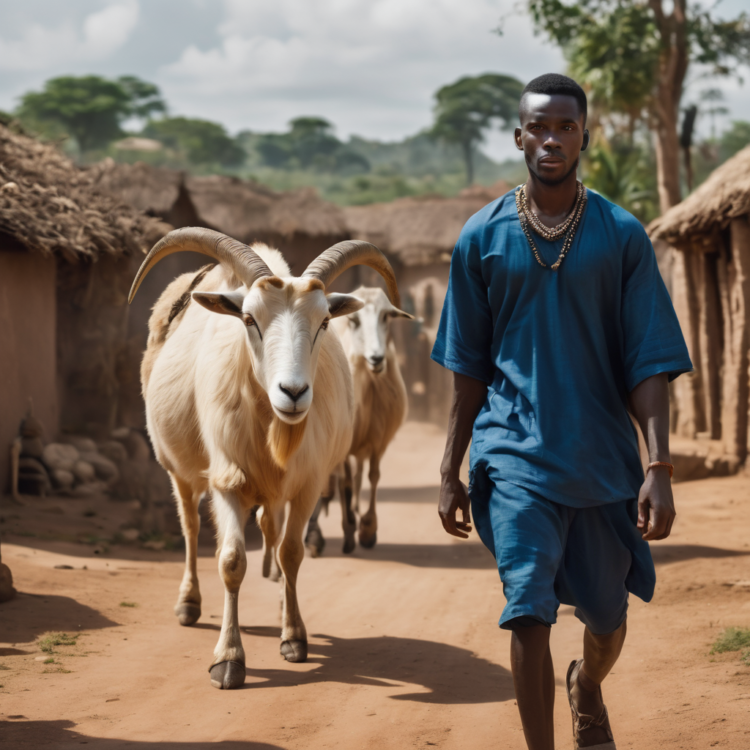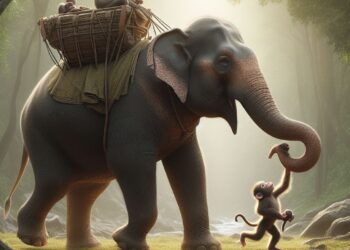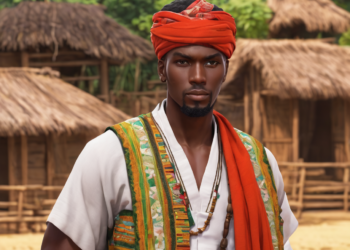In a little village nestled between rolling hills and sparkling streams, there lived a kind man named Kato. He was known far and wide for his large herd of goats, but there was one goat that stood out among the rest. This goat was not just big; it was huge, so gigantic that people came from distant villages to marvel at its size.
Kato, being a generous and adventurous soul, decided to share the wonder of his incredible goat with the King. He believed the King would be delighted to receive such a unique gift. However, there was a problem – in the nearby mountains, a notorious group of robbers roamed, causing mischief and chaos.
Fearing the hazardous journey ahead, Kato sought the company of his brother. Together, they planned the trip to the Capital, but before setting out, Kato’s brother, who was a bit superstitious, decided to visit the village witch doctor to have his fortune told.
The witch doctor, with beads and feathers adorning his hut, listened to the brother’s concerns. In a hushed, mysterious voice, he warned, “You must go alone, and until you reach your destination, eat no salt and drink no banana beer. If you disobey, misfortune will befall you.”
With this unsettling warning echoing in their minds, Kato and his brother set out on their journey. Kato led his gigantic goat, its horns sparkling in the sunlight, as they traversed winding paths and crossed babbling brooks. The mountains loomed ahead, and the air was filled with a sense of adventure and uncertainty.
As they reached the mountainous terrain, Kato, feeling the heat of the day, decided to rest in the shade of towering boulders. He unpacked his lunch, a simple meal prepared by his wife, and began to eat. The delicious flavors filled his mouth, but suddenly, the witch doctor’s words echoed in his mind – “eat no salt.” Panic set in. Had he unintentionally sprinkled salt on his food?
His heart raced as he continued the journey, the weight of uncertainty heavy on his shoulders. Soon, he encountered the first of the notorious robbers, a crafty fellow with a sly smile.
“Why are you driving a pig?” the robber asked, eyeing the gigantic goat.
Kato, bewildered, insisted, “It’s not a pig! This is my wonderful goat, a gift for the King!”
The robber, pretending to be surprised, bid a quick farewell and scurried away. But this encounter was just the beginning.
As Kato continued, each subsequent encounter with the robbers became stranger. The second robber exclaimed, “What a fine pig you have there! Where did you get it?” Confused and frustrated, Kato repeated, “It’s a goat, my wonderful goat for the King!”
This unusual pattern repeated with three more robbers, each mistaking the gigantic goat for a pig. It was then that the realization struck Kato like a lightning bolt – he had unwillingly eaten salt, and according to the witch doctor’s warning, misfortune would follow.
Terrified, Kato abandoned his gigantic goat and sprinted back to the village. Exhausted and feverish, he reached home, confessing to his family about the witch doctor’s warning and the salt-laden meal. The fever took hold, and Kato succumbed to its grip.
The news of Kato’s misfortune reached the robbers, who seized the opportunity to take the gigantic goat. They celebrated with a grand feast, sending a portion to the witch doctor as promised. Kato’s family, grieving their loss, not only mourned the passing of a kind soul but also became more convinced of the witch doctor’s mystical powers.
And so, in the little village, the tale of Kato and his colossal goat was told for generations, a cautionary story about heeding warnings, facing consequences, and the mysterious ways of the world. The children, gathered around the storyteller, learned valuable lessons about trust, superstition, and the importance of making wise choices on life’s adventurous journey.



